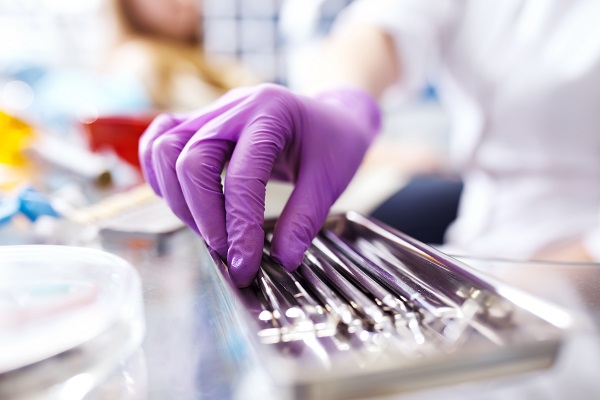What to Expect After Oral Surgery

Wanting to know what to expect after oral surgery so you can prepare yourself? Good idea. The better prepared you are, the more likely you will have a successful outcome. Some of the more common reasons for oral surgery are having one or more teeth extracted, one or more dental implants placed in the mouth or corrective jaw surgery. No matter your reason for needing oral surgery, knowing what to expect is going to help you fully recover. Ready to learn more?
After oral surgery
Everyone who needs to have oral surgery will receive specific aftercare instructions from their dental professional, which should always be followed, as the instructions are meant specifically for them and their particular surgical situation. The following list includes information of what anyone can expect to happen after undergoing oral surgery.
Resting
One of the most important things someone needs to make sure they do after having any type of oral surgery performed is to completely rest for at least two days, sometimes three days. It will simply depend on the type of oral surgery they had and their dental professional's recommendation when it comes to how many days they need to rest, and it is an essential part of a completely successful recovery.
Swelling
Some degree of swelling can be expected after undergoing oral surgery. It will depend on the location of the surgery as well as what type of oral surgery is being performed when it comes to how much swelling a patient can expect. The swelling will often reach its peak within three days and will often disappear within 10 days.
Pain
Patients will experience various levels of pain, which is dependent on where the surgery is performed and the type of surgery. This makes it necessary for all patients to discuss their pain options when preparing for oral surgery.
Bleeding
Minor bleeding is common and usually tends to subside within two days. Biting down on gauze is often recommended, as this direct pressure helps to stop the bleeding. Another common recommendation to help stop any bleeding is to place a wet tea bag to the area that is bleeding, as tea contains certain chemicals that help to stop any bleeding.
Fever
A mild fever is fairly common after someone undergoes oral surgery. It is when someone experiences a temperature higher than 101° that there may be a potential problem, as a high fever could be a sign of infection.
Do you feel prepared for oral surgery?
After reading the above information, are you ready for oral surgery? Being prepared to undergo oral surgery is important, just like knowing what to expect after having the surgery. When you know what to expect after your surgery, it is going to be much easier for you to do what is necessary to ensure your successful recovery. If you have any questions for us, please let us know, as we are more than happy to provide you with the answers you need.
Request an appointment here: https://www.montgomerycountyperio.com or call Montgomery County Periodontal Associates at (281) 404-7548 for an appointment in our The Woodlands office.
Check out what others are saying about our dental services on Yelp: Oral Surgery in The Woodlands, TX.
Related Posts
Gum grafting is a dental procedure to treat gum recession, where the gum line recedes exposing more of the tooth or its root. This condition can cause sensitivity, increased decay risk, and aesthetic concerns. Gum grafting techniques restore gum tissue to its original form to correct this issue.Gum grafting is the addition of tissue where…
A periodontist can treat various stages of gum disease, from gingivitis to periodontitis. Learning the answers to these common questions about gum disease can help patients understand when periodontal care is needed to achieve good oral and general health. Gingivitis is a mild and reversible form of gum disease that leads to swelling, redness, and bleeding…
An oral pathology must receive immediate treatment. This can prevent more complications later on. Your oral surgeon can help correct any dental problem. Here are the details about each common oral pathology and its corresponding treatment.This oral pathology results from a bacterial infection because of plaque buildup. Symptoms of this condition include gum bleeding and…
Are you considering getting a dental implant from a periodontist? Dental implants, also known as endosseous implants or fixtures, are a great solution for people who have lost teeth due to injury, disease, or decay. They can provide a long-term, stable solution for replacing missing teeth, and the process of getting an implant from a…
